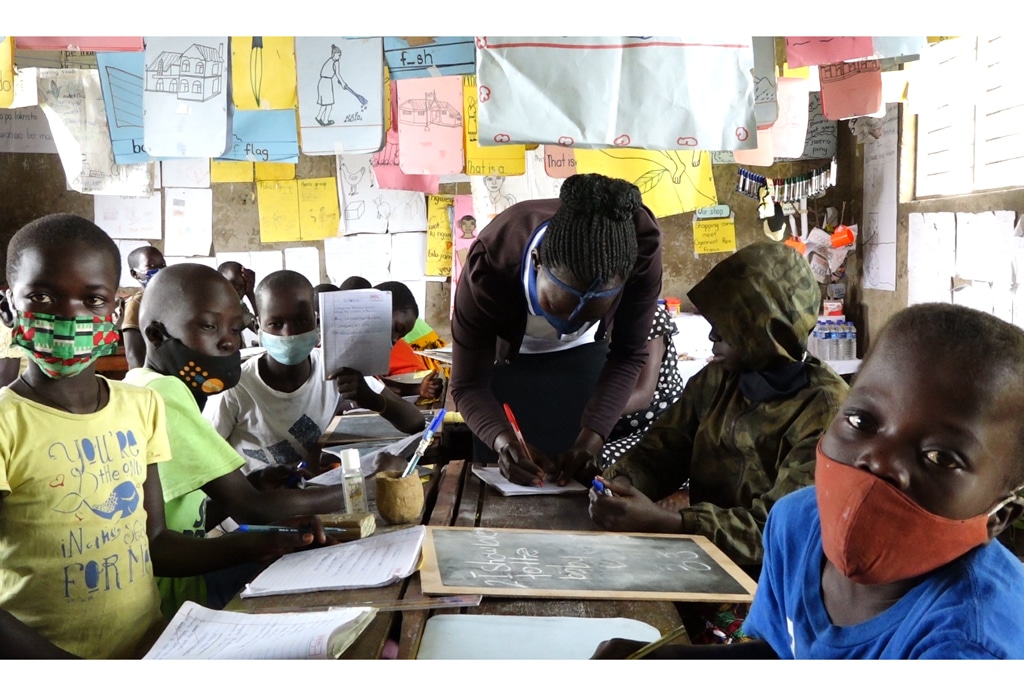This website uses cookies so that we can provide you with the best user experience possible. Cookie information is stored in your browser and performs functions such as recognising you when you return to our website and helping our team to understand which sections of the website you find most interesting and useful.
Geneva Global is part of Global Impact Ventures

Education Inititives > education articles
The Monitor: Community Learning Programme Pays Off in Uganda
The Monitor: Community Learning Programme Pays Off
By Tobbias Jolly Owiny, Correspondent, Daily Monitor
Monday, January 03, 2022
An initiative to promote learning among rural communities under the Accelerated Learning Programme (ALP) in Acholi Sub-region has impacted on
the lives of more than 20,000 children. The district administrations of Gulu, Amuru, Omoro, Nwoya, and Kitgum introduced the learning programme (speed schools) in 2016. The initiative aims at providing access to education for the disadvantaged children.
At Lacor Primary School in Gulu City, it is the fifth year since the speed learning centre was established. Ms Grace Anenocan, the school head teacher, says: “It increased our enrolment because all of them are absorbed into the school after their promotion besides the learning materials in the speed school is shared by the other classes in the regular section.”
Ms Anenocan says 95 percent of the learners qualify to join P4 after sitting the promotional examinations. Whereas Gulu has 10 schools enrolled as learning centres under the programme, a similar number is spread in the rest of the districts of Nwoya, Omoro, Amuru, and Kitgum. In an interview with Daily Monitor at the weekend, Mr Richard Kibwota Okidi, the municipal education officer for Kitgum Municipal Council, said since 2017, the programme has improved educations standards.
“Besides improved quality of learning due to instruction materials provided, enrollment in the implementing schools shot up by nearly 20 percent,” Mr
Kibwota said.
The intervention in Acholi Sub-region is being implemented with financial and technical support from Geneva Global, a non-governmental organisation.
Ms Rebecca Ecwou, the country director of Geneva Global, says: “Over the years, 26,000 children have benefitted either through the speed classes that we
run in these communities.” “We have done this programme since 2016 in settled communities where children between the ages of 9 to 14 who had missed school, successfully returned to school. Last year, we extended the programme to Alebtong, Otuke,Agago and Kitgum districts,’’ she added.
Under the initiative, the parents of the learners are also empowered economically and socially to invest into financial savings and enterprise development.
Mr Richard Irwenyo, the principal education officer of Gulu City Council, says the learning programme gave opportunities to thousands of disadvantaged
learners who had dropped out of school. “Bringing together more than 10,000 learners to resume their studies in already established public schools is a great achievement,” Mr Irwenyo said.Ms Joyce Moriku Kaducu, the State Minister for Primary Education, said the speed learning approach has been absorbed by the Education ministry.
How it works:
The speed school learning condenses the primary curriculum into three years, allowing over-age learners to catch up with the formal school system. The
programme recruits qualified teachers who run the learning centre as instructors and scheme lessons based on a compacted curriculum endorsed by the Ministry of Education and Sports as well as the National Curriculum Development Centre. Level One class covers P1 to P3 content, Level Two covers P4 to P5 content while Level Three covers P6 and P7 content. There are more than 50,000 school-aged children scattered across the region.
